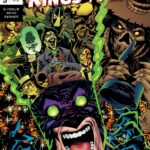“Don’t Know Why,” sung by Norah Jones, is a song that resonates deeply with listeners who appreciate melancholic tunes and thoughtful lyrics. Often described as the perfect rainy day song, it delves into feelings of regret and missed opportunities in love. This exploration of “don’t know why song lyrics” will unpack the meaning behind each verse and chorus, offering a deeper understanding of the song’s emotional core.
Verse 1 & 2: Initial Hesitation and Regret
The song opens with a confession of hesitation and missed connection:
I waited till I saw the sun
I don’t know why I didn’t come
I left you by the house of fun
I don’t know why I didn’t come
The repetition of “I don’t know why I didn’t come” immediately establishes the central theme of the lyrics: confusion and regret over inaction. The speaker acknowledges waiting until sunrise, a detail suggesting procrastination and perhaps a dawning realization of their mistake. The phrase “house of fun” adds a layer of irony, contrasting a place of joy with the speaker’s internal sadness and absence.
The second verse continues this theme of longing and escape:
When I saw the break of day
I wished that I could fly away
Instead of kneeling in the sand
Catching teardrops in my hand
“Break of day” mirrors the “sun” in the first verse, reinforcing the passage of time and deepening regret. The wish to “fly away” is a powerful image of wanting to escape the current emotional pain and the reality of their choices. “Kneeling in the sand / Catching teardrops” evokes a vivid picture of despair and helplessness, grounding the abstract feeling of regret in tangible imagery.
Chorus: Drenched in Wine and Forever on My Mind
The chorus offers a glimpse into coping mechanisms and lingering emotions:
My heart is drenched in wine
But you’ll be on my mind forever
This short chorus is potent. “My heart is drenched in wine” suggests seeking solace in alcohol, a common response to heartbreak and sadness. Despite this attempt to numb the pain, the line “But you’ll be on my mind forever” reveals the enduring impact of the person and the lost opportunity. This contrast highlights the depth of the speaker’s feelings; temporary fixes cannot erase lasting emotional imprints.
Verse 3 & 4: Isolation and Lingering Regret
The later verses expand on the themes of isolation and the enduring nature of regret:
Out across the endless sea
I would die in ecstacy
But I’ll be a bag of bones
Driving down the road alone
This verse presents contrasting images of desire and reality. “Endless sea” and “die in ecstasy” suggest a yearning for something grand and fulfilling, perhaps a metaphorical representation of the love that could have been. However, this is sharply contrasted with the image of becoming “a bag of bones / Driving down the road alone.” This stark imagery conveys a sense of emptiness, loneliness, and a bleak future, emphasizing the heavy consequences of inaction and regret.
The final verse circles back to the initial confusion and reinforces the feeling of emptiness:
Somethin’ has to make you run
I don’t know why I didn’t come
I feel as empty as a drum
I don’t know why I didn’t come
The line “Somethin’ has to make you run” hints at a possible external pressure or fear that might have contributed to the speaker’s inaction. However, the repeated “I don’t know why I didn’t come” underscores the central mystery and self-blame. “Empty as a drum” is another powerful simile, emphasizing the hollowness and lack of fulfillment resulting from the missed opportunity.
Final Thoughts: The Fear of Risk and Regret
“Don’t Know Why” lyrics poignantly capture the pain of regret stemming from fear and inaction in love. The song speaks to the universal experience of hesitating when faced with emotional risk and then grappling with the consequences of missed chances. Norah Jones’s soulful delivery enhances the melancholic beauty of Jesse Harris’s songwriting, making “Don’t Know Why” a timeless exploration of the human heart and its complexities. The song serves as a poignant reminder of the importance of seizing opportunities and confronting fears in matters of the heart, lest we be left asking ourselves, “I don’t know why I didn’t come.”
